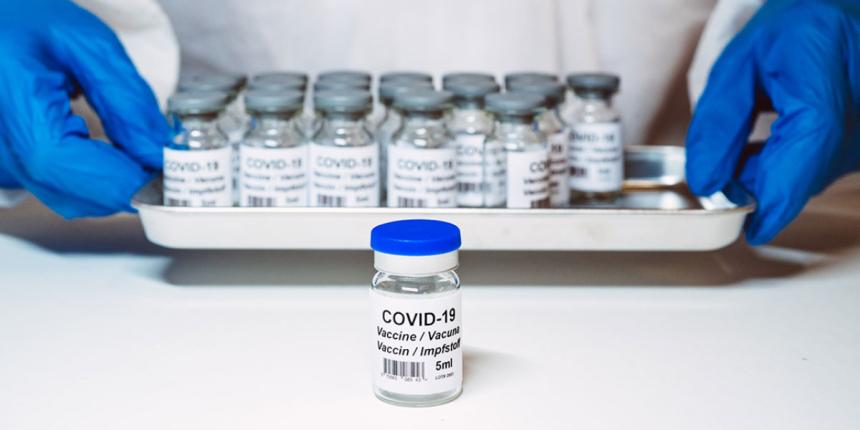Five Questions About the COVID Vaccines (And When Can I Get It)

I know many of you want to know more about the COVID-19 vaccines that were approved last month, and I thought I’d share some important information with you.
WHEN CAN I GET THE VACCINE?
I also know many of you are anxious to find out if/when your MDVIP-affiliated doctor will be able to give you the vaccine. This is understandable. The vaccines are the first step for many of us in returning to a more normal life.
Unfortunately, neither your doctor nor MDVIP can influence the distribution or timeline of the vaccine rollout. Vaccine distribution is being handled by the U.S. government and your local and state governments. Each state has a different set of procedures for distribution and different criteria for who gets the vaccine first.
In some states, a few primary care doctors have access to the vaccine. Other states are not currently giving vaccines to primary care doctors. A few states are vaccinating both frontline healthcare workers and people over age 65, but other states may be only inoculating healthcare workers and long-term care facility residents. (On Jan. 12, the federal government announced that states should begin inoculating people 65 and older, but it's unclear whether there are enough doses to do that and how individual states will distribute vaccines.)
Rest assured, however, that your doctor and MDVIP are monitoring the state plans so they can advise you on when and where you can get the vaccine. Your MDVIP-affiliated physician will reach out to you just as soon as they know when and where you can get it.
You can also see what your state’s distribution plan is here.
In the meantime, you should follow CDC guidelines – avoid unnecessary trips, wear a mask, socially distance and wash your hands frequently.
HOW DO THE VACCINES WORK?
The two currently approved vaccines are a new approach to inoculation. They are called messenger RNA vaccines. Traditional vaccines introduce either a weakened form or dead form of a real virus into your body to create an immune response. The body forms a response through antibodies and T-cells, and when it encounters the real virus, it attacks and kills it.
mRNA vaccines work a little differently. In the case of the Moderna and Pfizer vaccines, the vaccines use mRNA – this is like an instruction booklet for your cells — to grow a harmless protein that’s part of the virus. Your body sees this protein and develops the same type of response as traditional vaccines. Later, if it encounters the coronavirus that causes COVID-19, it attacks and kills it.
While these are the first successful mRNA vaccines, scientists have been working with this technology for decades. Some researchers think these types of vaccines may be more effective than traditional vaccines, and they’ve certainly proven faster to develop.
Here’s more detail about how they work.
ARE THEY SAFE?
While the new vaccines were created with great speed, they have followed traditional testing protocols, including multiple trials in humans with large-scale testing in phase 3 trials. They have taken a different approach at some turns – combining phase 1 and 2 trials, for example - but researchers say this doesn’t make them less safe.
Pfizer’s and Moderna’s vaccine phase 3 clinical trials were substantially bigger than other vaccines you may be familiar with. Many of you have probably gotten a Tdap booster vaccine for tetanus and diphtheria. There were far fewer participants in that trial than in either of the COVID-19 vaccine trials.
After the phase 3 trials, the Food and Drug Administration reviewed all the safety data from the trials and deemed the vaccines safe for distribution. During the trials, there were very few serious adverse effects.
WHO SHOULD NOT GET THE VACCINE?
If you can get the vaccine when it’s available to you, you probably should. It’s important from a public health and personal health standpoint that as many people as possible get vaccinated in order to stop this pandemic.
Still, despite the overwhelming safety data on the vaccines, there are some groups of people who may need to wait to get vaccinated. For example, people who have had major allergic reactions to other vaccines may need to wait. And neither vaccine was tested on children under the age of 16.
There was no safety data collected from either vaccine trial specific to use in pregnancy, but the American College of Obstetricians and Gynecologists says the vaccine shouldn’t be withheld if you’re pregnant if you meet certain CDC criteria.
Because he or she knows you, your doctor is the best source of information on whether you should get the vaccine.
WHAT ARE THE SIDE EFFECTS?
A common question is whether this vaccine will make you sick. All vaccines produce side effects, but not everyone experiences them. The side effects for the Pfizer and Moderna vaccines are similar to those produced by the annual flu shot. About half of recipients experienced fatigue and headaches. A third had chills and muscle pain. Most of these side effects, which are often a sign that the body’s immune system is working, were mild and went away quickly.
You can read more about the side effects here.
MDVIP is committed to helping patients and physicians in our fight against coronavirus. We continue to update our COVID Resource Center on mdvip.com with the latest information. And we’ll continue to send you updates as we know more.


